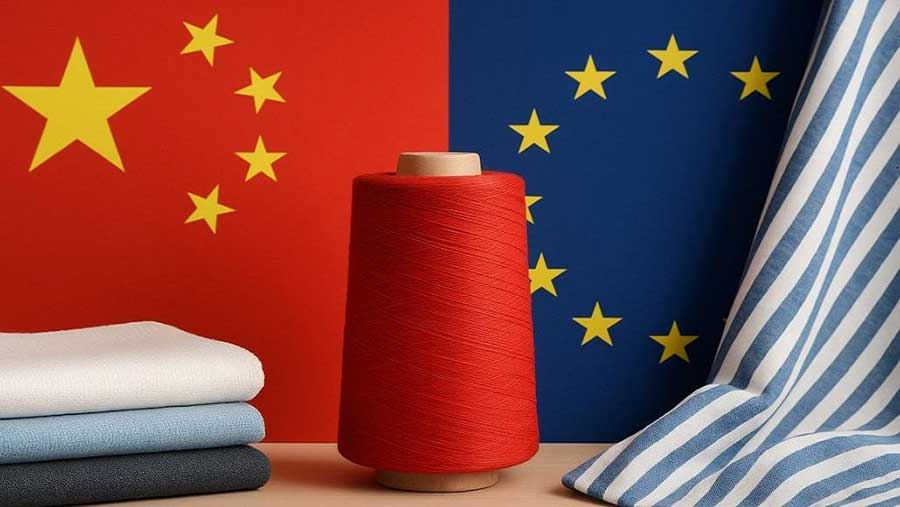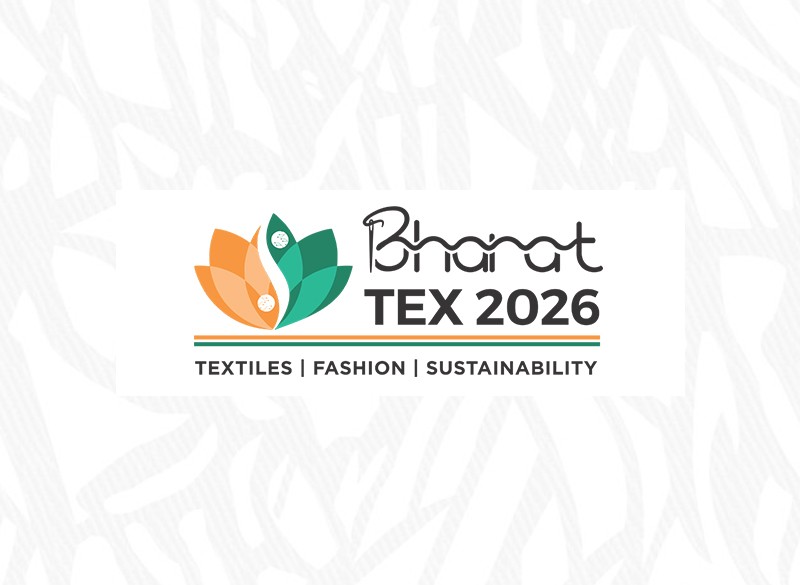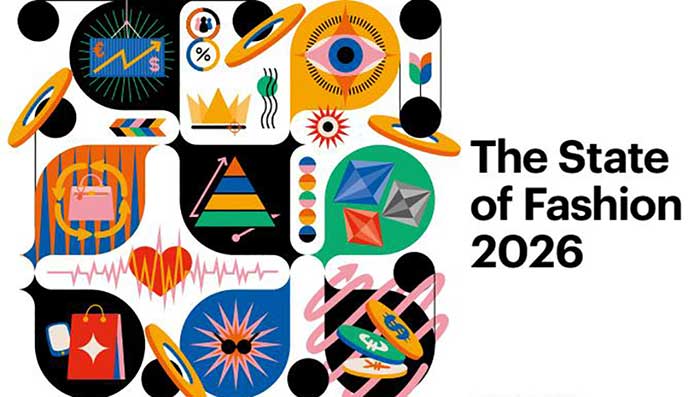FW
January cotton crop in India for the 2015-16 season has been estimated at 353 lakh bales, whereas in December, the estimate was 357 lakh bales. Total cotton supply for the 2015-16 season has been estimated at 440.60 lakh bales while domestic consumption is estimated at 315 lakh bales, thus leaving an available surplus of 125.60 lakh bales. The arrival of cotton during the ongoing 2015-16 crop year is estimated to be lower than last year up to the same period.
This is due to the fact that farmers are holding back seed cotton expecting better prices. Arrivals are lower this year also due to the relatively lower crop estimated for the 2015-16 crop year compared to last year. The cotton crop estimate for Punjab is nine lakh bales this year while in Haryana it is 17 lakh bales. Last year, Punjab yielded an estimated 13 lakh bales while Haryana yielded 23.50 lakh bales.
There are four major cotton species of cultivated cotton and India is the only country to grow all four species of cultivated cotton. In addition, hybrid cotton is also cultivated in the central and southern zones. The diploid species contributes 25 to 30 per cent of the country’s production. The tetraploids variety contributes the remaining 70 per cent of the cotton production in India. These varieties have fine quality fiber and are normally used by the textile industry.
Leading global technology research and advisory company Technavio’s latest report on the global textile machinery market provides an analysis on the most important trends expected to impact the market outlook from 2016 - 2020. Technavio defines an emerging trend as a factor that has the potential to significantly impact the market and contribute to its growth or decline.
According to Technavio heavy industry research analysts, the top three emerging trends driving the global textile machinery market are: Automation in textile machinery, growing popularity of spinning machinery in India and overseas demand for Spanish machinery.
According to the report, automation plays a crucial role in improving the quality and cost-competitiveness of textiles. Automated textile machinery accelerates textile production and increases the flow rate of fabric, enabling lean manufacturing.
Technavio expects spinning capacity in India to develop, as the country has high cotton export demand. More than 10 -15 per cent capacity will likely be added in the next year. This creates a positive scenario for the domestic spinning machinery manufacturing industry.
The report says that the Spanish textile machinery manufacturers are gradually making a mark in the global market as they develop the latest technologies in areas such as braiding, technical fabric, spinning, finishing, dyeing, and printing. These manufacturers also manufacture customized machines and are also exporting over 80 per cent of their production.
To enhance competitiveness in production of readymade garments, the government of India is preparing to develop a Garment Processing Zone (GPZ) within Simara Special Economic Zone (SEZ), in Bara district.
The concept of the GPZ came into light after the United States extended zero tariff preference for 66 products, including apparels, into its market through ‘Trade Facilitation and Trade Enforcement Act’ to Nepal. The world’s largest economy is all set to provide preference for Nepali products through a separate act to support the country’s aspiration to graduate to the league of developing nations by 2022 through sustainable and robust economic growth.
Through the act, the United States which is expected to come into effect after a month, has declared it would provide duty-free access to 66 Nepali products and support the country in trade capacity enhancement. Nepali apparel entrepreneurs are excited with the recent development because the United States was a major export market for Nepali apparels until Multi Fiber Agreement (MFA) was phased out on January 1, 2005. The country had exported readymade garments worth Rs 12.5 billion in fiscal 2001-02. Garment industry, which is on the verge of collapse after MFA was phased out, is expected to revive once again.
GPZ in Simara SEZ will be completed within three years as per SEZ Development Committee, which will house 69 blocks for garment industries and will be equipped with all required facilities - power, road connectivity, water supply and sanitation, among others.
Vietnam has invited Indian investment in its apparel production. Since Vietnam joined the Trans-Pacific-Partnership agreement, Indian apparel firms that invest and run their production in Vietnam can enter leading markets such as the US, the EU, Japan and Canada with a zero tariff.
Vietnam has highlighted favorable conditions for investment such as a convenient infrastructure, competitive labor costs, central and local incentives to stimulate investment on land leasing, and tariffs. In addition the country has committed to reforms and projects the social environment in the country as friendly.
To bolster bilateral cooperation in the sector, India has offered a $300 million preferential credit for its business projects in apparel in Vietnam within a decade. However, while an opportunity has come to shift investments to Vietnam, not just for garment but even for textile companies, Vietnam doesn’t grow cotton and needs textile items for making garments. Not many Indian firms will be able to seize the moment.
To set up a decent-sized textile or garment unit in Vietnam, and gain from the duty advantage, a company needs to invest at least Rs 1,000 crores. In an atmosphere of a global slowdown, a massive liquidity crunch and stressed balance sheets, it’s not possible for many Indian companies to move out immediately and invest.
Indorama Ventures (IVL), Thailand and India’s Dhunseri Petrochem (Dhunseri) have agreed to enter into a 50:50 joint venture (JV) to manufacture and sell polyester (PET) resins for Indian domestic markets and for exports. Dhunseri will purchase a 50-per cent stake in the 216,000 ton Micro Polypet (MicroPet), a company owned by Indorama Ventures in, Haryana. IVL in turn will acquire a 50-per cent stake in a carved out entity, called Haldia, of Dhunseri, with an effective capacity of 480,000 tonnes PET manufacturing located in West Bengal. The JV is subject to regulatory approvals and expected to complete in H2 2016.
In India, PET usage per head is just 0.6 kg per annum compared to 2.6 kg per annum in China and 10.9 kg per annum in the United States. This JV is a win-win situation for both the producers with 700,000 ton per annum of combined capacity in the strongest growth market having a population in excess of a billion people, as well as having favorable trade agreements with logistically advantaged countries in the region. The JV will gain significant synergy benefits being the sole producer of PET resin in North and East India and with both sites being effectively integrated with third party PTA suppliers, which will bring savings in SG&A and procurement. IVL’s global market reach and high utilisation rates are expected to supplement Haldia’s location benefit at Eastern India’s largest port while micropet enjoys a strong location advantage in the high-demand territory of North India.
Bangladesh’s Ready Made Garments (RMG) sector, the biggest earner of foreign currency for the country after the agricultural sector, may face an uncertainty in its exports to the US as a result of the signing of a bill opposing import of goods produced by forced labour by US President Barack Obama. The US government lists garment products from Bangladesh among goods that are produced by child or forced labour, although there was no official remark on whether Bangladeshi goods would be affected by the restrictions. According to the new law, shipments derived from slavery will be kept out of the country that closes a legal loophole that allowed import of such goods if US demand exceeded domestic production.
Senior commerce secretary Hedayetullah Al Mamoon said that there was no scope to include Bangladesh in the provision of forced labour or workers’ abuse, as ‘forced labour is completely banned by the constitution and there is no such abuse of women in the country.’ He added that an official statement would be made after a US statement reaches the Bangladeshi government and discussions are held with authorities concerned following a review.
Meanwhile, BGMEA President Siddiqur Rahman said that there was no slavery, child labour, forced labour or abuse of RMG women workers in Bangladesh. He claimed that such allegations of forced labour were totally absent in other industrial sectors too.
The EU will give Swaziland duty-free access to 9,600 products, including textiles, by October. This is a permanent trade agreement. It will help Swaziland become more competitive and attractive to investors who would be looking at accessing the lucrative EU market. Swaziland’s textile industry hopes to regain its vibrancy that was impaired due to the loss of African Growth and Opportunity Act (AGOA) almost two years ago. The loss of AGOA benefits restricted possibilities for diversifying agro-food sector exports.
Swaziland began benefiting from the AGOA program in 2001 when it voluntarily accepted the eligibility criteria, which included respect for the rule of law, poverty reduction, combating corruption, respect for workers’ rights and human rights, child labor protection and market openness. However, the country was struck off the AGOA list when it failed to meet the benchmarks.
Textiles have become a key player in Swaziland's otherwise moribund manufacturing sector. Swaziland's textile industry is dominated by garment-making factories owned by Taiwanese immigrants who came to Swaziland to take advantage of preferential trade conditions with the US under the African Growth and Opportunity Act, creating tens of thousands of employment opportunities. But with the loss of AGOA many of these Taiwanese companies lost interest in having Swaziland as a base.
Despite a 5.01 per cent increase in export turnover, and a 3.21 per cent rise in total goods exported in comparison with 2014, Vietnam’s shipments only occupied 3.45 per cent of the textile market share in the European Union last year. Cambodia’s market share was 3.64 per cent in the EU, 0.19 per cent higher than Vietnam’s. In 2015, the EU imported $3.11 billion worth of apparel from Vietnam, and products from Cambodia accounted for $3.27 billion.
So, although Vietnam was ranked among the top 10 in apparel exports to the European Union in 2015, it was outperformed by Cambodia. In January-February this year, Vietnam’s total garment and textile export turnover topped $3.6 billion, 12.4 per cent higher than the same period in 2015. Despite this, most Vietnamese exporters said their unit price tended to level off while some even had to lower their rate by 0.5 to one per cent.
The average unit price of Cambodian garments and textiles was lower than that of 2014. In the EU region, China led the board with 36.9 per cent, followed by Bangladesh, Turkey, India, Cambodia, and Vietnam, with 16.89, 11.62, 6.33, 3.64, and 3.45 per cent respectively.
Indian garment companies may get an interest subvention of 3.5 per cent on working capital loans. Borrowing working capital at high interest rates keeps product prices up, resulting in lowering India’s competitiveness in the world market. The high cost of finance has been a major barrier for the growth of the textile sector. Interest subvention will make India’s products competitive vis-à-vis products of other countries such as Bangladesh and Vietnam where textile players can avail of capital at much lower interest rates than those in India.
It’s estimated that the average interest rate on working capital is between 10.5 and11 per cent. When the Technology Upgradation Fund Scheme was introduced in the early ’90s, the average interest rate on working capital was offered at three per cent, which brought lots of investment into the textile sector. But now that the interest rate has surged to around 11 per cent, debt servicing has got difficult.
The textile sector contributes nearly seven per cent to India’s gross domestic product, and 13 per cent to merchandised exports. Only about $40 billion of textiles a year have been supplied by India to the global market over the past several years. In fact, this year, world textile imports are expected to decline mostly because of the global economic slowdown.
India has the largest area under cotton cultivation in the world, covering 12.7 million hectares of cultivated land, which constitute about 37 per cent of the total area under cotton in the world. The country is currently the world’s second largest exporter. However, it’s estimated that cotton production in India will fall by over seven per cent for the October 2015-September 2016 crop year.
This year, India will produce about three million bales less than last year. India will produce 35.3 million bales this year. A striking point is that this season India has an opening stock of 7.36 million bales as against 5.39 million bales in the last season that began in October of 2014. This year, as mill consumption is expected to remain at the same level, less production this year will somewhat offset the excess opening stock. Despite a drop in production, cotton prices have been in a bear grip owing to higher carryover stocks. Indian cotton prices, since the beginning of 2016, have fallen three per cent compared with over nine per cent correction in international prices. Prices in India are finding support on the back of rising exports.
Cotton prices in the international market have also crashed to a level not seen since August 2009. The fall is due to widespread fears that China, which has been a net big importer, will soon start selling cotton from reserves, depressing prices the world over.
India has already exported about 40 lakh bales of cotton so far this year, of which 20 lakh bales were shipped to Pakistan. Pakistan is buying more cotton than expected from India after floods cut its own crop to the smallest in over a decade. Cotton production in the next season (October 2016 to September 2017) may see an uptick and could reach about 38 million bales. The market will also see an uptick in the next season with price expected to be about Rs 34,000 to Rs 35,000 per candy.












